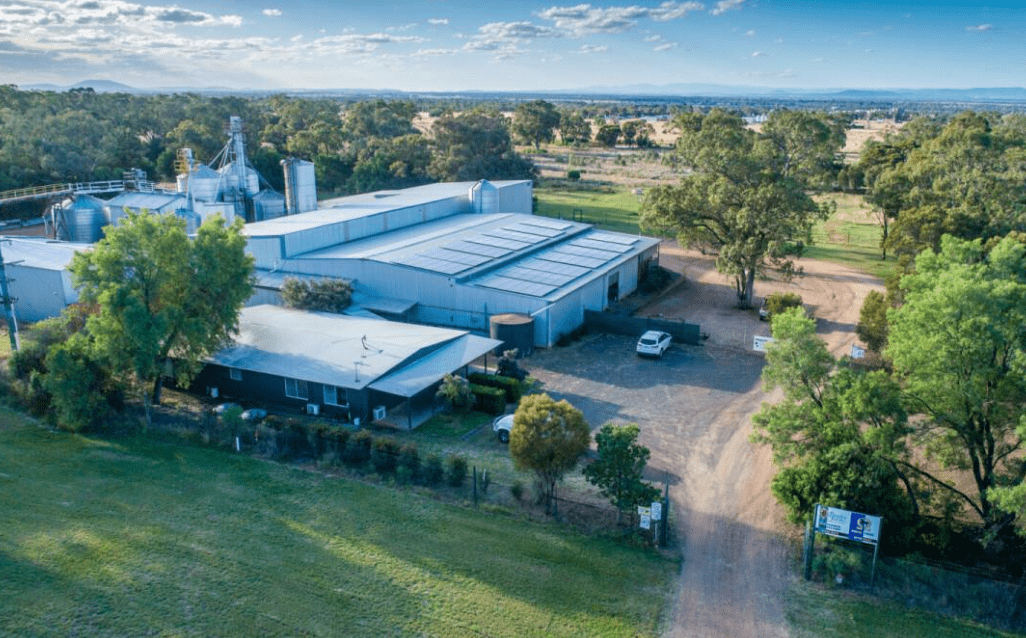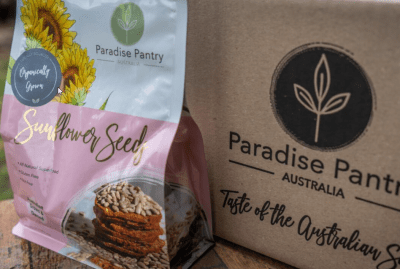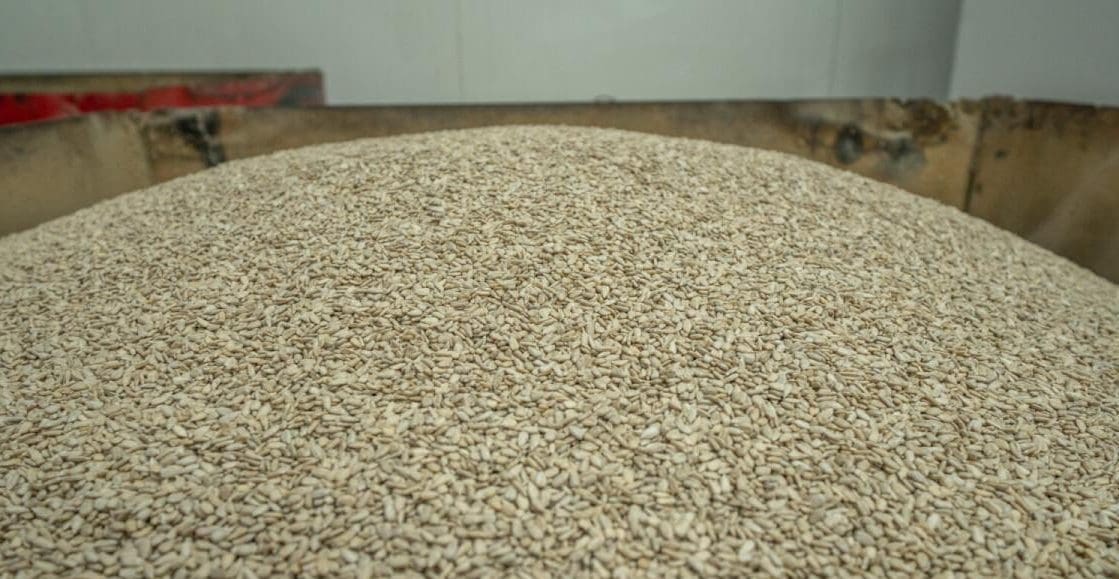
Paradise Farms features a range of processing and storage facilities. Photo: Colliers
AUSTRALIA’S largest processor of sunflower kernels, Paradise Farms, is on the market at a time when the nation is set to produce its biggest sunflower crop in five years.
It is being offered for sale by brothers, Tim and John Reardon, with the business featuring sunflower kernel processing business, Paradise Farms, and equine feed product company, Omega Feeds.
Located five-kilometres west of Gunnedah in north-east NSW, the 6.5-hectare site is for sale as a complete and functional processing operation and marketing business with a widespread customer base in the human and equine consumption industries.
The Reardons launched Paradise Farms in 1990, and have grown business as a processor of sunflower kernels and kibble as well as sunflower seeds for food manufacturers located throughout Australia.
The brothers founded Omega Feeds in the late 1990s as a division of Paradise Farms to capitalise on the demand for fibre-based equine feeds, as opposed to traditional grain-based blends.
Colliers Agribusiness agents Bob Coote and James Beer are handling the sale on behalf of the Reardons.
Mr Coote said the property is a rare opportunity to acquire a business which is already established in two individual markets.
He said the vendors worked hard to get the business to the level of success that it enjoys today.
“They live, eat and sleep the business,” Mr Coote said.
“They love it and they have made it an enormously successful business.
“The potential buyer has the opportunity to continue on operating the business as a sunflower-processing plant and, it’s even a bit more distinguished than that, they are the largest commercial processors of sunflower kernel in Australia.”
Mr Coote said he expected the viability of the business will draw interest from a range of prospective buyers.
“The market for a business like this is strong, because the demand for the end product is ever increasing.
“That is a trump card to have if you want to sell something.
“What they have is a unique and sustainable business.

Paradise Farms already supplies packaged products for the human consumption market. Photo: Colliers
“They have survived four years of drought and still had supply.
“Now [that] we are on the other side of that, and the seasons might return to normal, they’re in a strong position to take advantage of the increased demand that is coming their way.”
The property features a main processing shed which comprises a pre-cleaning shed, seed cleaning area, colour sorting and bagging rooms, birdseed shed, storage and cool room areas, loading and unloading areas, laboratory, and administration office.
There is also a silo complex with a total capacity of 2454 tonnes, a horse-feed shed and a residence.
Mr Coote said the Paradise Farms facility was strategically located to have easy access to the sunflower crops grown in northern NSW.
“It is located for supply; Liverpool Plains and Gunnedah area are a very good sunflower-producing areas, but they source sunflowers from as far as Central Queensland and into Victoria.”
He said the site was also within an easy distance of high-density population centres on the east coast and export ports.
NSW leads production
According to the March 2022 ABARES crop report, Australia’s 2021-22 sunflower producing forecast is 29,800t with NSW the largest supplier at 22,000t and Queensland responsible for producing the remainder.
Due to favourable seasonal conditions the sunflower crop was marginally up on the 2020-21 figure of 26,900t and is the largest the production since 2014-15.
However, the industry is still a far cry from its height in the 1990s, which saw national annual production as high as 218,000t.
Former Queensland grower and Australian Sunflower Association committee member, Kevin Charlesworth, said several factors worked against the industry over three decades to cut the production.
He said the closure of crushing plants, the movement to connect pricing to the world market, and competition from overseas imports, made the crop less attractive for growers.
He said the uncertainty pushed growers towards planting more sorghum.
“In round figures, growers say if sunflowers aren’t three times the price of sorghum, they aren’t worth growing,” Mr Charlesworth said.

The loss of sunflower imports from Ukraine could bring opportunities for Australian growers. Photo: Colliers
Global issues create opportunity
Mr Charlesworth said currently a lot of sunflower products in Australia – including most of the kernels – are imported, with the Ukraine historically leading the way.
He said the reduction of supply out of the Ukraine and neighbouring countries could create opportunities for the Australian-grown product, as well as resulting in sunflower price rises.
“There were predictions for higher prices for the season just been and, assumedly, it is going to be even higher with the Ukraine being out.
“Ukraine is the biggest exporter of sunflowers in the world, and they are the biggest manufacturer of sunflower oil.
“Those people who have been importing from Bulgaria or Ukraine will have no stock, because it’s not coming in.
“So, you would think growing sunnies in Australia will be a profitable business next season.”
Mr Charlesworth said, while global supply issues will be the biggest influence on the sunflower industry in the coming season, excellent water availability and soil-moisture levels in growing regions could also see the production levels rise.
Grain Central: Get our free daily cropping news straight to your inbox – Click here

HAVE YOUR SAY